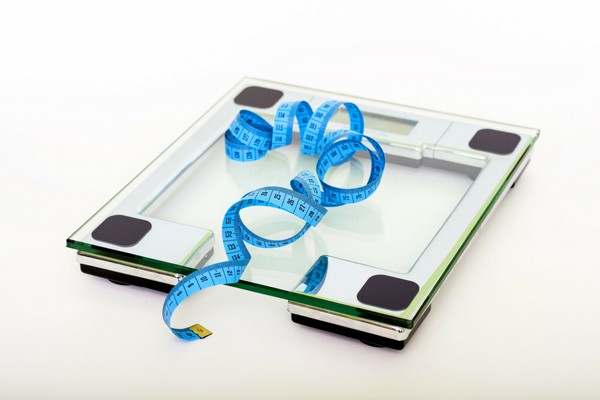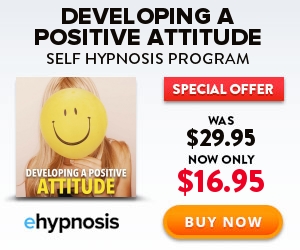
Hypnotherapy has been used by professionals for years to help patients conquer fears, change behaviors and make overall life improvements.
People also can practice this therapy on their own, which is known as self-hypnosis. If you've only ever seen hypnosis on TV, you may not have quite the right idea of what it is.
Simply put, hypnosis puts you into a state where you are much more focused than normal and less distracted by everything that is going on around you.
When you're in a hypnotic state, you're also more able to respond to suggestions because you're not at the mercy of your automatic responses.
However, you are awake and conscious and you need to process the suggestions for them to work, so there's no need to worry about anyone controlling your mind using subliminal messages, as that's a movie thing only!
The practice of self-hypnosis can work well as a therapy for many different reasons, so check out the eight below to help you decide if this therapy is the right one for you.
1. It Can Help Treat Addiction
Addictions don't come out of anywhere - they usually build over time. Your genes, life experiences, environment, and even your childhood all can play a role when it comes to developing an addiction.
Whether you're addicted to gambling, smoking, food, alcohol or drugs, you can use hypnosis to help you take back control over your actions and thoughts.
As noted by the Hypnosis Motivation Institute, this practice is particularly effective when you're in the earlier addiction stages or in recovery.
Use hypnosis in combination with other treatments for a truly comprehensive approach to addiction that can help you change your behavior and keep it that way.
2. It May Help You Shed Pounds
As pointed out on the Dr. Oz Blog, how much hypnosis does for weight loss is still in question, but it does appear that it helps.
Multiple studies showed that weight loss plans became twice as effective when combined with hypnosis; however, when other researchers reviewed those studies, they found a smaller weight loss effect from the use of hypnosis than the original researchers did.
Either way, it clearly doesn't hurt, and many people have found the practice to be a great tool for shedding pounds.

3. It Can Help Ease Chronic Pain
Many conditions can leave you in chronic pain, which can have a terrible effect on your quality of life. According to the American Physiological Association, hypnosis is an effective way to manage chronic pain.
The association says hypnosis helps alter the psychological components of the pain experience, so it can even impact severe pain. In more general terms, this means hypnosis can help you become less sensitive to pain.
It's still there, but because you are less sensitive to it, you're also less affected by it. When it comes to chronic pain, reducing the impact it has on your life can make a huge difference, so definitely consider self-hypnosis to help make your daily life less painful and more comfortable.
4. It's A Stress-Reducer
Stress is a constant force in society today and can contribute to the development of serious conditions, such as sleep disorders, diabetes, high blood pressure, and heart disease.
Hypnosis is a great way to help your body relax, which is important when it comes to reducing stress levels.
With your mind and body in a deeply relaxed state, they'll get the opportunity to repair, heal and recuperate.
While meditation can also work well as a stress-buster, some people find that hypnosis is easier and more effective, or they use both practices; remember that you don't have to trade one for the other if you are already meditating!
5. It Can Help You Sleep Better
As reported by WebMD, a Swiss study found that women who listened to deep-sleep hypnosis suggesting audio tape before going to sleep spent 66 percent less time awake and 80 percent more time in a deep sleep when compared to their non-tape listening counterparts.
This study was the first to use brainwave activity measurement to assess the impact that hypnosis has on sleep. The deep sleep hypnosis induced in the women is considered the "best" sleep because this is the type of sleep that is the most restorative for your mind.
Researchers did note that the person needs to be susceptible to hypnosis to get the sleep benefits; however, Dr. Kim Hutchison of Oregon Health and Science University noted that she finds hypnosis beneficial for even non-susceptible patients because of the quieting and relaxing effect it has on the mind.

6. It Can Help You Relax
Hypnosis is probably known first and foremost for its ability to help relax the mind and body.
This can help you become better at solving problems, more creative, less prone to irritation, and it also reduces the risk of health problems associated with stress.
People often struggle with the concept of truly relaxing, especially when they have busy lives, so if that struggle is familiar to you, self-hypnosis is definitely worth a try.
7. It Works As A Behavior Changing Tool
If you're the type of person who is often angry, snapping at others and not even knowing why you're behaving that way, hypnosis can be a useful tool for changing those patterns and helping you become happier and healthier as a result.
These behavioral patterns often are something you learned as a child, but when you are in a deep hypnotic state, you can help get rid of those old messages that tell you to behave a specific way and replace them with messages that tell you to act in new, appropriate ways.
As reported by the New Scientist, one study found that hypnosis actually affects the part of your brain responsible for the detection of and response to mistakes, and it also impacts the areas of your brain that control your high-level executive functions.
One such area that was affected was the prefrontal cortex's left side, and this is the part of the brain that is involved with your behavior and higher-level thought processing.

8. It Can Help Ease Anxiety
As discussed by the Calm Clinic, hypnosis can be an effective treatment for anxiety.
Since hypnosis is, by its very nature, designed to decrease anxiety symptoms, such as rapid breathing, a rapid heart rate and tension in the muscles, and has no side effects, it can work as an effective treatment for this condition.
The practice can specifically target three problems related to anxiety: muscle tension, emotional strain, and problems with sleeping.
It also helps with eliminating or lessening the effect of a phobia, which can cause or contribute to your anxiety.
For example, if your anxiety is triggered by the thought of being in a crowded room, you could use self-hypnosis to work through your fear of these types of situations.
Start Becoming The 'New You' Today...
Self-hypnosis can help you with a number of different aspects of your life. No matter what it is you are wanting to have a positive change in - self-hypnosis can help.
Why not start today by taking a look at our 'Developing A Positive Attitude' hypnosis track and take the first step towards the new you!
Click here to get the 'Developing A Positive Attitude' self-hypnosis track.




